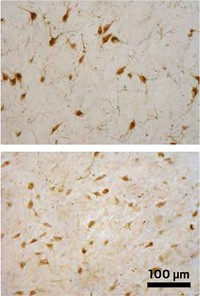Advertisement
Grab your lab coat. Let's get started
Welcome!
Welcome!
Create an account below to get 6 C&EN articles per month, receive newsletters and more - all free.
It seems this is your first time logging in online. Please enter the following information to continue.
As an ACS member you automatically get access to this site. All we need is few more details to create your reading experience.
Not you? Sign in with a different account.
Not you? Sign in with a different account.
ERROR 1
ERROR 1
ERROR 2
ERROR 2
ERROR 2
ERROR 2
ERROR 2
Password and Confirm password must match.
If you have an ACS member number, please enter it here so we can link this account to your membership. (optional)
ERROR 2
ACS values your privacy. By submitting your information, you are gaining access to C&EN and subscribing to our weekly newsletter. We use the information you provide to make your reading experience better, and we will never sell your data to third party members.
Environment
Compulsive Eating Resembles Addiction
Eating high-fat, high-calorie food shown to be a hard-to-break habit
by Sophie L. Rovner
April 5, 2010
| A version of this story appeared in
Volume 88, Issue 14
Overeating appears to be driven by the same brain changes that lead to drug addiction, according to newly published research (Nat. Neurosci., DOI: 10.1038/nn.2519). Neuroscientists Paul M. Johnson and Paul J. Kenny of Scripps Research Institute in Jupiter, Fla., gave some rats palatable high-fat, high-calorie food. The rats ingested twice the calories of normal rats. They lost control over their eating behavior, continuing to overeat even when faced with the threat of electric shocks. When the researchers tried to switch them back to a normal, nutritious diet, the rats refused to eat it. The researchers say that the tasty food overstimulates the reward circuit in a rat’s brain, and the brain adapts by decreasing the number of type 2 dopamine receptors in that circuit—just as it does in cocaine or heroin addicts. As a result, the rat needs constant stimulation from tasty food to avoid what the authors call “a persistent state of negative reward.” They suggest that medications developed to treat addiction could also be used to treat overeaters.







Join the conversation
Contact the reporter
Submit a Letter to the Editor for publication
Engage with us on Twitter